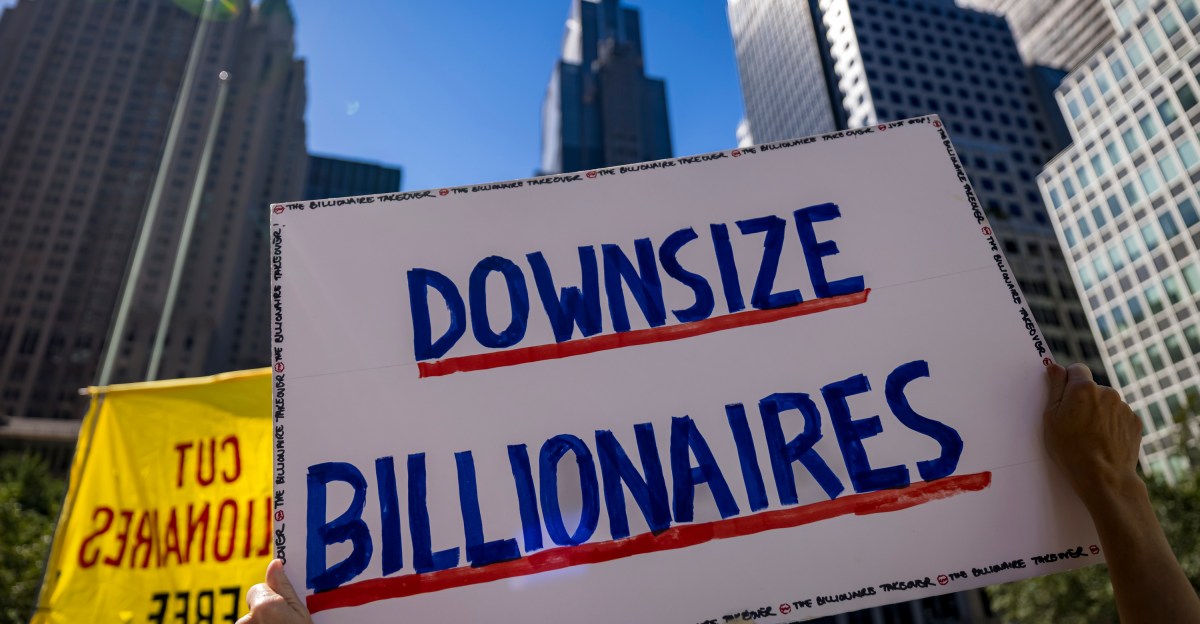**The Rise of Billionaires and Growing Anti-Billionaire Sentiment in America**
There are more billionaires today than ever before, both in the United States and globally. Not only has their number increased, but their wealth has also skyrocketed compared to a decade ago. This proliferation of billionaires is, in many ways, the result of deliberate policy choices. Changes to the tax code have made it easier than ever to accumulate and retain vast fortunes, even as the economic situation for the bottom 90 percent of Americans has seen little improvement.
As the wealth gap widens, anti-billionaire sentiments are growing stronger in U.S. politics. This shift was most recently highlighted by Zohran Mamdani’s victory in the New York City mayoral race, signaling a public pushback against extreme wealth concentration.
—
**Why Is Everyone So Upset About Billionaires?**
It may feel like everyone is unhappy with billionaires right now. The stark contrast between Americans struggling with high grocery prices and healthcare premiums and the ultra-rich enjoying super yachts and private jets is difficult to ignore. Some may be frustrated by Elon Musk’s trajectory toward becoming the world’s first trillionaire. Others may be upset by billionaires’ political influence—such as their efforts to defeat candidates like Zohran Mamdani—or by the fact that many billionaires pay lower tax rates than typical Americans.
New survey data supports this sentiment: 67 percent of Americans now believe billionaires make society less fair, up eight points from just a year ago.
To delve deeper into this issue, Today, Explained co-host Noel King spoke with Evan Osnos, a staff writer at *The New Yorker* who has spent years studying the ultra-wealthy. Osnos’s book, *The Haves and Have-Yachts: Dispatches on the Ultrarich*, compiles a decade’s worth of essays on the subject. Here is an excerpt from their conversation, edited for clarity and length.
—
**The Billionaire Lifestyle: Temptations and Troubling Questions**
Noel King asked Osnos about the best and worst parts of spending time with billionaires. Osnos shared that the best part is the temptation—it’s easy to get used to a life of luxury, like enjoying fresh-squeezed juice. However, the worst part is that such experiences often prompt deep questions about the democratic health of the country. The gap between the ultra-wealthy and everyday Americans sends observers back into history, revealing both fascinating and troubling patterns.
When asked about a typical billionaire, Osnos noted that the median billionaire today looks a lot like Elon Musk: a man in his mid-50s who amassed his fortune through a mix of technology, inheritance, and sheer accumulation. Notably, it’s never been easier for a “small billionaire” to become a “giant billionaire.” Ten years ago, no one was worth $100 billion, but today there are over a dozen “centibillionaires.” For example, Elon Musk’s wealth jumped from under $20 billion a decade ago to around $400 billion today.
Worldwide, there are more than 3,000 billionaires, with the largest growth seen in the United States. In 1990, there were just about 66 billionaires in the country; now, nearly a thousand. Even more remarkable is how much wealth they control: the top 0.1 percent once controlled 7 percent of America’s wealth, but that figure has surged to 18 percent.
—
**Policy Changes Fueling Wealth Concentration**
Why has this happened? Osnos explains that changes in policy, especially tax policy, have played a crucial role. Tax rates on the richest Americans have been cut significantly over the past 50 years. The average tax rate for the top 400 richest Americans is now about half of what it was five decades ago, while tax rates for the bottom 90 percent have remained largely unchanged. This shift in the tax code means it’s easier not just to make money but also to hold onto it over generations.
—
**What Do Billionaires Buy?**
Billionaires rarely struggle to find ways to spend their fortunes. Previously, ultra-wealthy individuals followed the advice, “The whale that never surfaces doesn’t get harpooned,” meaning they stayed out of public view to avoid scrutiny or taxation. Today, however, the trend has shifted.
For instance, Jeff Bezos’s lavish wedding in Venice was a public affair, visible to the entire world. Superyachts are perhaps the most extravagant symbols of wealth, with some costing upwards of half a billion dollars. Beyond yachts, billionaires find new ways to splurge on experiences that were unimaginable a generation ago.
According to Osnos, musicians are now available for private performances. As one artist explained, billionaires can afford things like having the Foo Fighters play in their backyard on a random Thursday.
For some, spending challenges grow as their fortunes increase. One consultant caters to so-called “bored billionaires,” devising unique experiences such as building a 3D-printed restaurant on a Maldives sandbar, where guests can dine once before the structure is washed away—never to be used again. This kind of extravagant spending reflects just how outsized their wealth has become.
—
**The Rising Call to ‘Abolish Billionaires’**
The idea that billionaires shouldn’t exist is becoming more mainstream. Though this concept dates back as far as the Russian Revolution of 1917, it has gained renewed visibility in recent years. Politicians like Bernie Sanders and Elizabeth Warren have made wealth taxes and the notion that billionaires are a policy failure central to their platforms.
Zohran Mamdani’s New York City campaign exemplified this sentiment, taking place in America’s financial capital and challenging the traditional political influence of the wealthy.
Pop culture figures contribute to this conversation as well. For example, singer Billie Eilish once questioned billionaires at a Wall Street Journal event, telling them to “give your money away.”
—
**Economic Power Meets Political Power**
Osnos highlights how the fusion of economic and political power has never been clearer. For instance, during the inauguration of President Trump’s second term, the crowd included many billionaires, surpassing the presence of Congressional leaders. Trump appointed at least a dozen billionaires to high government positions, an unprecedented melding of wealth and political power.
This fusion influences government decisions, such as recent fiscal legislation—the so-called “one big beautiful bill”—which critics argue transfers wealth upwards by cutting support to poorer Americans while providing benefits to the ultra-rich.
—
**The Future of American Attitudes Toward Billionaires**
Osnos reflects that for a long time, many Americans accepted or even celebrated extreme wealth as a symbol of opportunity—firmly rooted in the American Dream myth that anyone can rise from the bottom to the top. However, the reality has shifted dramatically.
For example, someone born in 1940 in the U.S. had a 90 percent chance of earning more than their parents. Today, that chance is less than 50 percent. As opportunities have narrowed and inequality has grown, Americans’ enthusiasm for celebrating billionaires as emblems of opportunity is fading.
Drawing on historical parallels, Osnos cites historian Ramsay MacMullen’s study of the fall of Rome, summarized as “Fewer had more.” This encapsulates the current American challenge: the sustainability of democracy is being tested by ever-growing wealth concentration.
The public’s willingness to accept massive fortunes may be changing as the pendulum slowly swings toward greater skepticism and a demand for fairness.
—
**Conclusion**
The explosive growth in the number and wealth of billionaires, combined with the increasing visibility of their political influence and lifestyle, is fueling a new wave of anti-billionaire sentiment in America. While billionaires continue to enjoy unprecedented wealth and luxury, many Americans question the fairness of a system that enables such concentration of wealth amid stagnating opportunity for the majority.
As this conversation becomes more common in politics and popular culture, it remains to be seen how the balance between wealth, power, and democracy will evolve in the years ahead.
—
*Listen to the full interview and much more on Today, Explained—available on Apple Podcasts, Pandora, Spotify, and wherever you get your podcasts.*
https://www.vox.com/podcasts/468697/evan-osnos-book-billionaires-taxes-musk-bezos-backlash

